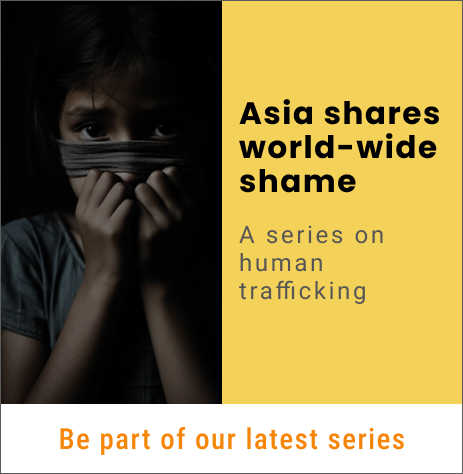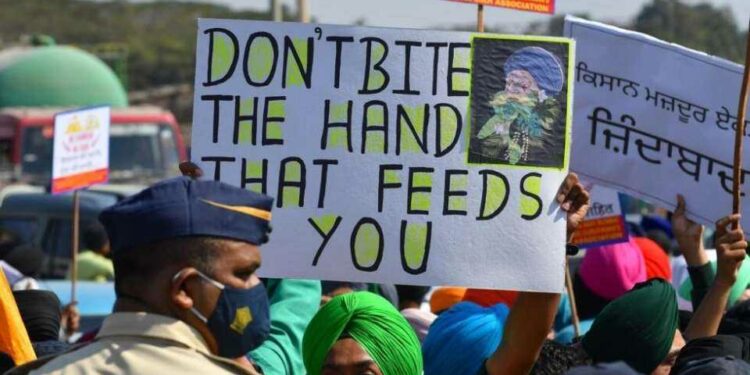The Indian government of Prime Minister Narendra Modi has continued to undermine democracy and civic space through an “array of restrictive laws and policies to silence dissent” ahead of the national elections, says global rights body, Civicus Monitor.
The concerns were raised in a report “India: Fundamental freedoms deteriorate further in Modi’s second term” released on April 17, just two days before the start of the national elections in the world’s largest democracy.
Modi and his Hindu-theocratic Bharatiya Janta Party (BJP) is seeking a third consecutive term in the election to be held in phases until June 1.

The increasing use of restrictive laws to crack down on civil society, human rights defenders, and independent media, “highlights a government that has become intolerable of any form of dissent” in India, said Marianna Belalba Barreto, a lead researcher with Civicus Monitor.
“These laws have become tools for judicial harassment and are incompatible with India’s international human rights obligations as well as India’s Constitution,” Barreto alleged.
The draconian Unlawful Activities Prevention Act (UAPA) was used to implicate and imprison activists in politically motivated cases such as the Bhima Koregaon and Delhi riots, the report said.
Between 2015 and 2020, only three percent or 235 of the 8,371 people arrested were convicted of their charges, the group said citing a report by the People’s Union of Civil Liberties.
It is extremely difficult for people charged under the UAPA to secure bail, it pointed out.
“The implication is that the UAPA is being used as a tool to harass and detain activists and critics,” Civicus noted.
In between 2018-2020, a total of 16 people including activists, academics, and folk singers have been arrested under the Bhima–Koregaon riot case, but only two have received bail.
Among the arrested, Jesuit priest and rights activist Father Stan Swamy was denied bail multiple times and died in a hospital as an undertrial prisoner on July 5, 2021.
Digital forensic firms revealed the arrests in the Bhima–Koregaon riot case were based on doctored incriminating materials planted in computers and phones of the activists by using Pegasus spyware developed by an Israeli firm, Civicus said.
Civil society organizations have faced an increased crackdown through the cancellation of their registrations, raids, and investigations by law enforcement agencies, the report said.
The Foreign Contribution (Regulation) Act (FCRA), which regulates foreign-funded activities, has been exploited to suspend, refuse or cancel organizations’ licenses. Among the victims was the Missionaries of Charity (MC) congregation founded by Mother Teresa.
Civicus said the law enacted in 1976 was amended for the second time in 2020 to make it more stringent and to give the government sweeping powers to crack down on non-government agencies.
“The law and its amendments have been used to target and harass civil society and human rights defenders, who very often express criticism and dissent towards the government,” the Civicus report said.
In the last 10 years, more than 20,600 organizations had their FCRA licenses canceled, Amnesty International reported last September.
Prominent rights organizations such as s Citizens for Justice and Peace, Lawyers Collective, and People’s Watch, and international organizations such as Amnesty International India and Greenpeace India, among others, were targeted using the provisions of the FCRA, Civicus alleged.
Civicus pointed out that human rights defenders critical of the government and protesters were implicated under anti-terror laws, faced arbitrary arrest and detentions, and even denied bail on several occasions.
“Since 2019, major protests in India have been met with arbitrary arrests and excessive use of force by the police, including the use of teargas and lathis [batons],” the Civicus report said.
In 2019, students protesting the passage of the discriminatory Citizenship (Amendment) Act (CAA) in BJP-ruled states faced excessive police force.
In June 2022, protests over defamatory comments by a BJP spokesperson against the Prophet Muhammad were suppressed with crackdowns in several places in the northern Uttar Pradesh state.
The state authorities also used bulldozers to raze the houses of some protesters in the city of Prayagraj.
On Feb. 13, 2021, Delhi police arrested 21-year-old climate activist Disha Ravi for allegedly editing a protest toolkit relating to the farmer’s protest and placed sedition charges on her.
The November 2020 protest from farmers against three farm laws was also met with brutal police action.
The report also highlighted the suppression of activism and dissent in Kashmir, India’s only Muslim-majority state.
Since August 2019, journalists who report on critical issues have been targeted and arrested, human rights organizations have faced raids and activists have been arrested under anti-terror laws.

Khurram Parvez, a rights activist, and Irfan Mehraj, a Kashmiri journalist and human rights defender are among those arrested under UAPA over “politically motivated charges,” for their activism and work.
Civicus urged the Indian government “to drop all charges against human rights defenders, activists, and protesters, and immediately and unconditionally release all those detained.”
Credit: Source link



